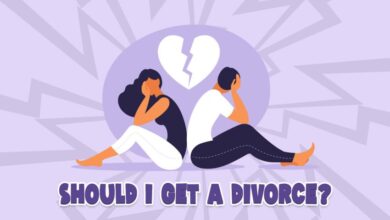How Are Lawsuits for Wrongful Death Handled?
Most wrongful death lawsuits never see the inside of a courtroom

Most wrongful death lawsuits never see the inside of a courtroom. Instead, they’re settled or dismissed out of court. The victim’s family must prove that the defendant breached their duty of care. It can include evidence like the accident report, autopsy results, and police records. Then there’s the question of causation. If the defendant’s misconduct directly caused your damages, they’ll be liable to pay.
Statute of Limitations
All civil actions have inherent time limits for when they must be filed, called statutes of limitations. Wrongful death lawsuits are no different and must be brought within the proper time frame, or else you will lose your right to pursue compensation. Wrongful death actions are not governed by the same rules as personal injury cases, and the statute of limitations may differ depending on state law. A wrongful death attorney Tampa FL will help you understand your state’s laws and ensure the correct time frame applies to your case.
A wrongful death settlement cannot bring your loved one back or undo the harm caused by their loss, but it can provide financial assistance for various needs. Your lawyer will create a compelling argument on your side using a range of information, including police reports, witness testimony, medical records, images from the accident scene, and expert testimony. This evidence will support your claim for damages, including emotional distress, grief and pain and suffering, loss of companionship, and more.
Damages
The death of a loved one can be devastating for surviving family members, especially when the decedent’s death was caused by someone else’s reckless or negligent conduct. People left behind frequently have outstanding medical bills, burial costs, and income loss. While money can’t replace a lost loved one, compensation can help ease financial burdens and bring some sense of closure. Wrongful death lawsuits can allow for the awarding of non-economic damages like pain and suffering.
However, proving these losses can be challenging, especially for families of non-wage earners. Survivors may recover some losses by filing a survivorship action claim and a wrongful death lawsuit. However, third parties can place liens on survivorship actions that must be considered before accepting any settlement offer. It is crucial to have an experienced attorney review any proposed liens before acceptance. Additionally, if any settlement is structured as lump sum payments, the IRS will likely tax portions of the payout.
Expert Witness Testimony
Expert witness testimony is often the key to winning a wrongful death case. This testimony can help a jury see that your loved one’s death was due to another party’s negligence and that the damages you seek are just. Expert witnesses can provide testimony based on their education, training and experience in the field of study. This type of witness can be a great way to bolster your case, but you must choose the right one for your claim. Forensic experts, such as forensic pathologists and toxicologists, can provide detailed analysis and opinions on autopsy results or any other forensic evidence relevant to your case.
Financial experts, such as forensic accountants or financial analysts, can help to quantify lost income and assess the economic impact of your loved one’s wrongful death. Psychologists or psychiatrists can better understand the emotional and psychological effects of your loss, and they can also assist in calculating non-economic damages like pain and suffering.
Counseling
Wrongful death lawsuits often have complex legal issues and require specialized expert testimony. This type of case differs from filing a car accident or slip and fall claim, which can take years to resolve. The defendant’s insurance company will use high-priced attorneys to stall or dismiss your claim. The victim’s survivors must prove the defendant breached their duty and that this caused the victim’s injuries or death (called causation). Medical records, autopsy reports, and witness testimony are important for this. Survivors may recover damages for lost income, pain and suffering, and other losses.
It is a complicated process and depends on state law, which defines who may sue in wrongful death cases. Surviving spouses, children, and parents of deceased fetuses are typically allowed to sue. Some states also allow domestic or life partners, financial dependents, and putative spouses to recover. In addition, some states permit more distant relatives to sue for loss of care and support.




